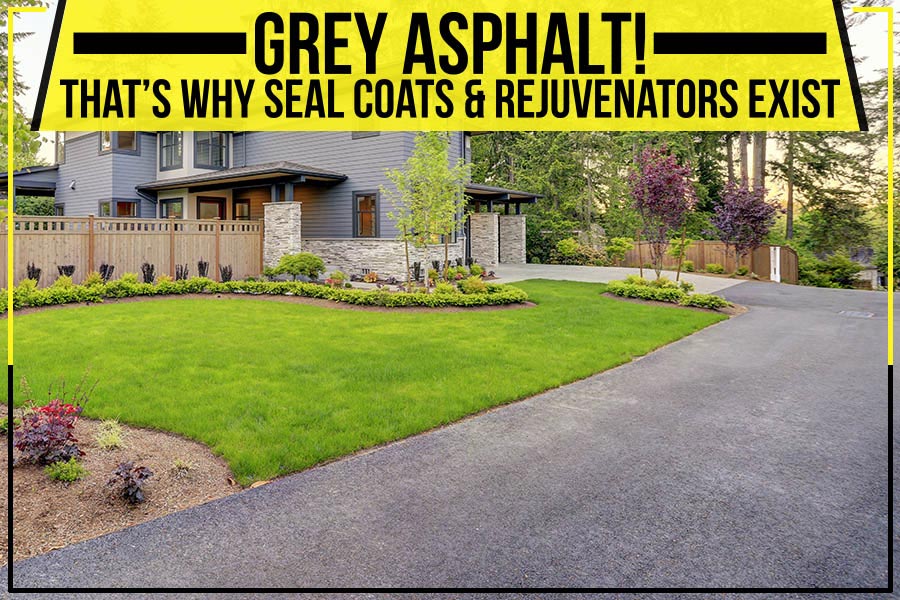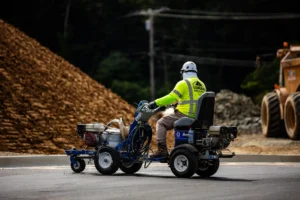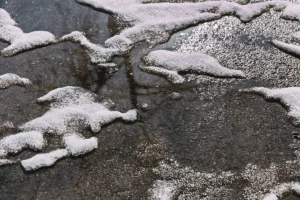Asphalt naturally turns a light shade of grey as it dries out and begins to break apart. This is because the binding oils in the asphalt have evaporated, leaving the surface layer vulnerable to weathering and wear. Don’t fret, though – there are ways to prevent grey asphalt!
Why does asphalt turn grey?
Although asphalt has excellent waterproofing and adhesive properties, it is not indestructible. Due to their chemical makeup, the molecular structure of water, salt, and other substances may easily break down.
Your pavement’s binding and waterproofing qualities diminish as these molecules disintegrate. When you see a section of highway that has gone from black to grey, you can see this happening.
Since asphalt is made by distilling petroleum, it is sensitive to degradation by exposure to petroleum-based products. The petroleum-based elements in your asphalt will break down if oil or gas pours onto your driveway.
How to prevent asphalt from turning grey or fading and losing color?
To mitigate this problem, you can seal or rejuvenate your asphalt driveway.
What is grey asphalt seal coating?
Sealcoating involves the application of a thin liquid layer of emulsion to an asphalt pavement to protect against UV radiation, rain and snow, and car fluids. Sealcoating won’t fix problems like cracks, but it will prevent future damage from occurring. A seal coat is necessary to increase the life of asphalt pavement and keep out harmful elements. It also helps to restore the color of your pavement.
Types of asphalt pavement sealers
Various compounds, including coal tar emulsion, asphalt emulsion, and acrylic, are used to seal asphalt driveways and pavements.
Asphalt emulsion sealers
Asphalt emulsion sealers are made of asphalt and are more ecologically responsible for preserving your driveway. Asphalt-based sealants are superior in air quality preservation, smell, oxidation prevention, and skin irritation.
Coal tar sealer
Coal tar is the most known asphalt sealer because it is weather-resistant and gives a long-lasting, shiny surface. However, it is not the most environmentally friendly option as it contains carcinogens.
Acrylic sealer
Acrylic sealers are an excellent middle ground between coal tar and asphalt emulsion sealers. They last longer than asphalt emulsion sealers and are more eco-friendly than coal tar sealers. However, they can be more expensive.
What is Asphalt rejuvenation?
Asphalt rejuvenation is restoring chemical qualities that have deteriorated since installing fresh asphalt. Unlike traditional water-based asphalt emulsion sealers, asphalt rejuvenators are manufactured from coal tar mixed with aromatic oils and solvents.
An asphalt rejuvenator works by chemically revitalizing and protecting the asphalt binder by replenishing oils that have been lost owing to deterioration. This technique also protects the pavement from the air, water, and chemical impurities, decreasing oxidation and degradation and extending the pavement’s useful service life.
How long will asphalt sealcoating last? How long will asphalt rejuvenation last?
It typically lasts two to three years. It allows the sealant to fade away before adding another layer gradually. Is your driveway starting to show its age? Has it been a while since you last sealed your asphalt driveway? Standard Paving offers sealcoating services in Annapolis, Maryland, and its surrounding service areas.
We’ve been helping people maintain their driveways, making them look incredible and attractive. Don’t hesitate to reach out to us right away to see how we can assist you.




